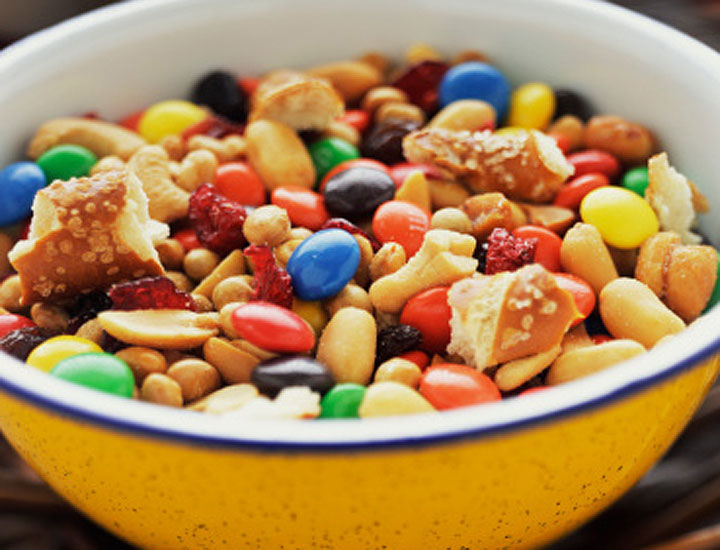Are you grazing on pre-packaged trail mix, granola bars, and other seemingly healthy snacks because they’re good for you? New research is warning that food with “fitness branding” may be misleading consumers into eating more and exercising less.

While these snacks sound like a better option compared to chocolate bars and chips, they may be doing more harm than good, according to U.S. and German researchers.
The products were marketed with a “health halo,” handing weight-conscious consumers a sense of security that they were making a good decision with their eating.
READ MORE: 6 misconceptions about nutrition and healthy eating
“Unless a food was forbidden by their diet, branding the product as ‘fit’ increased consumption for those trying to watch their weight,” Dr. Joerg Koenigstorfer and Dr. Hans Baumgartner wrote.
“To make matters worse, these eaters also reduced their physical activity, apparently seeing the ‘fit’ food as a substitute for exercise,” they said.

Get weekly health news
Koenigstorfer, of Technische Universität in Munich, and Baumgartner, of Pennsylvania State University, worked with study participants who admitted to being constantly concerned about their weight.
READ MORE: Is diet soda adding to your belly fat?
The group was given trail mix that was labelled as “Fitness” or “trail mix.” The fitness brand came with a picture of running shoes.
The study participants had to pick one of the products as an afternoon snack and were given time to taste and rate the product. In another leg of the study, the group had to exercise on a stationary bike after eating their snacks.
The scientists say that if the volunteers were focused on losing weight, they reached for the trail mix. But they also had a tendency to exercise less so they burnt fewer calories.
The team says consumers need to be more cognizant of what’s being marketed to them. While a product may look healthy, it’s your job to read the nutrition label and ingredient list to make sure it fits into your daily diet.
READ MORE: Gluten-free for weight loss? You’re doing more harm than good, study suggests
Other experts have suggested the same thing: a gluten-free lifestyle, for example, has been promoted as a weight-loss method. But pastries, bread and other goods slapped with a gluten-free label aren’t necessarily any healthier than their counterparts. They’re still processed goods.
Scientists have even pointed to diet sodas as a culprit. It’s been said time and time again: dieters turning to diet soda end up compensating for those zero-calorie drinks by eating more. It could be by justifying a second helping of dinner because they saved the 165 calories they would have got from a can of Coke. Or, say, eating two cookies at break if they opted for a diet beverage at lunch instead of a latte.
carmen.chai@globalnews.ca
Follow @Carmen_Chai






Comments